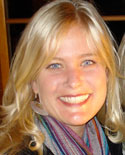 |
|||
| UW School of Public Health Home | Events | Make a Gift | UW Alumni | |||
|
May 2010 | Return to issue home
Preparing the Next Generation of Global Health Professionals By Sarah Hohl, Department of Global Health
As global health disparities intensify, funding for global health is increasing and passion for global issues among young people is growing. A groundswell of interest in global health education, training, and management programs from prospective and current students has propelled more opportunities for work and education in the field. Our research team from the Department of Global Health—Amy Hagopian, Julie Beschta, Judith Wasserheit, Steve Gloyd and I—interviewed 25 experts to determine key competencies global health professionals must possess to address current and future global health issues. Respondents represented diverse donor, academic and implementing organizations in seven countries, and included Julio Frenk (Gates Foundation/Harvard University), Peter Piot (UNAIDS), Lincoln Chen (Chinese Medical Board), Helene Gayle (CARE), and Adrienne Germain (International Women’s Health Coalition). Here are some of their responses: Q: How do you believe universities can contribute now to prepare graduates to be competent global health workers of the future? Donor: It’s always bothered me that if you want to become a pediatrician, you have to take care of sick children. Yet in schools of public health, we allow people to just go to class and you don’t ever have to take responsibility for a community. If we could learn how to get faculty and students responsible for things in the community, that’s the way to do hands-on training. Academic: Because of this complexity, what is needed for global health is a new generation that is multi-talented, that is not coming from one brand of training, that is not coming from a biomedical background or a public health background or an ‘X’ background. To train the global health leaders of the future we need [professionals with] a complex set of abilities who understand economics, the political scene, the culture and the social situation, as well as the scientific. Implementer: The focus on the disease model no longer works. The curricula should be more holistic and multidisciplinary to address the root of disease. What is the relevance between health and poverty? Health and education? What is the relevance of health during conflict? All these are real issues. In addition to applied learning and social determinants of health, respondents stressed the importance of leadership and management, coalition building, and policy advocacy. Findings from this study will help shape the programs and courses at the University of Washington, as well as programs and courses being developed by universities across the world that train global health professionals. May 2010 | Return to issue home |
|||
|
|||
